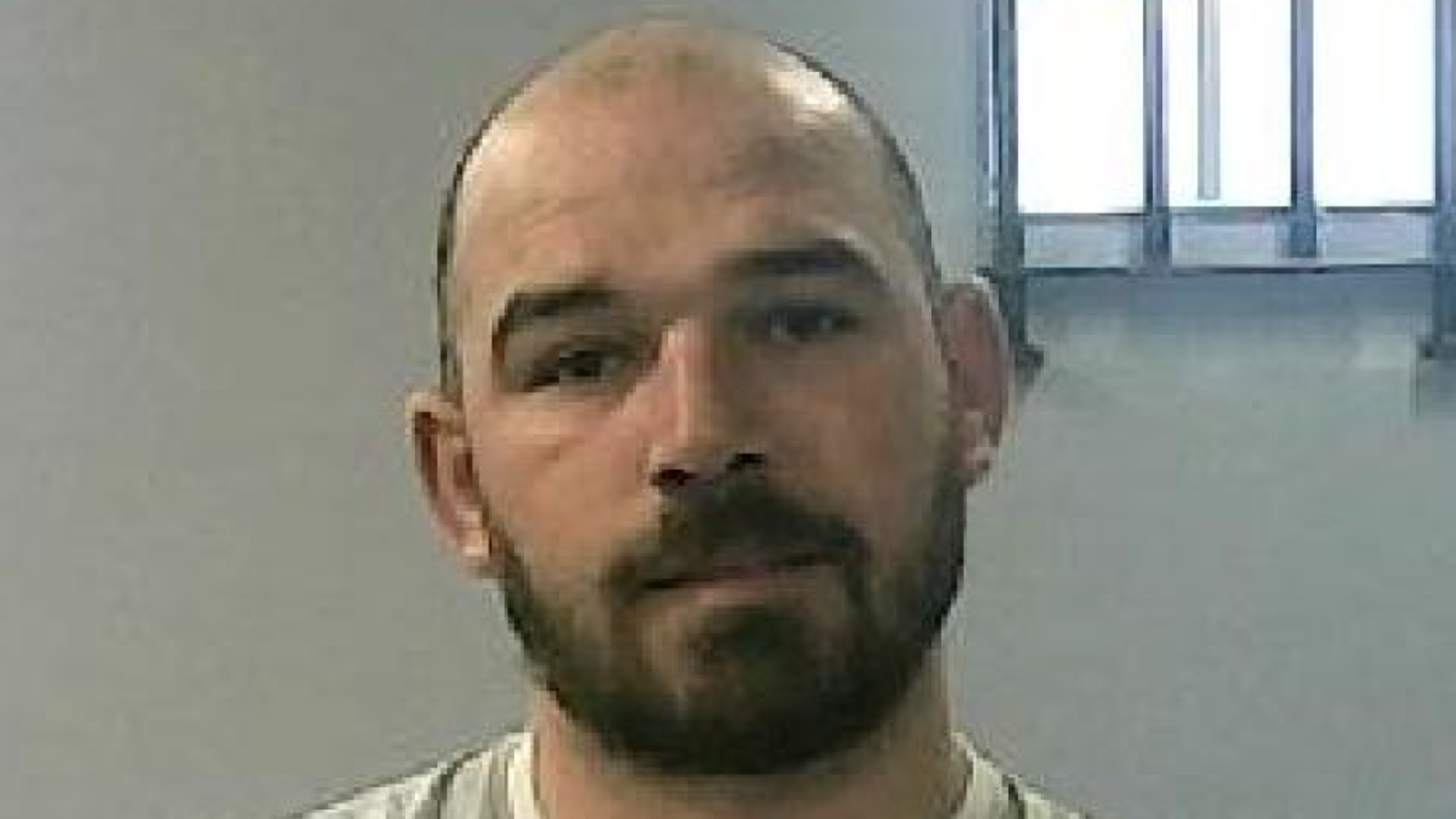Mark Ashton united LGBT+ activists and threatened Welsh miners (Picture: Terrence Higgins Trust/Johnny Orr/YSL)
In his tragically short life, Mark Ashton achieved a lot.
The Irish gay rights activist was a communist, an agitator, a student, a switchboard volunteer, a writer, a drag queen – and a very warm, funny and hugely intelligent human being, according to his friends.
His support for mining communities brought two unlikely groups together in his fight for equality.
He grew up in Northern Ireland during the Troubles, and moved to London as a young man. After a trip to Bangladesh to see his father in 1982, the shocking poverty he witnessed motivated him to join politics.
Mark became a prolific activist, supporting tenants’ groups, LGBT helplines, anti-racism movements and nuclear disarmament campaigns.
He took the dynamism and power of the London gay rights movement to a sleepy south Wales town when he threw his support behind the protesting miners.
The miners’ strike of 1984, one of the most bitter and divisive episodes in modern British history, saw thousands arrested across the nation as they fought against colliery closures. The action caused months of hardship for communities, and Mark was driven by his respect for the men who risked their lives underground to keep the lights on, and after seeing police harassment of miners.
He began rattling buckets at Pride with his friend Mike Jackson. The pair raised £150 for the miners, which spurred them on to set up Lesbians & Gays Support the Miners (LGSM). When Margaret Thatcher began to seize the National Union of Miner’s (NUM) funds, the LGSM began administering their support directly to specific mining towns in south Wales: Neath, Dulais and Swansea Valley.
Mark Ashton was a founding member of the Lesbians and Gays Support the Miners group (Picture: YSL)
They faced a fight however, with one tabloid running the headline: ‘perverts support the pits’.
At a party at Camden’s Electric Ballroom that year – which they called the Pits and Pervert concert – the group raised over £5,000, an equivalent of more than £20,000 today, which went to mining towns in south Wales; Neath, Dulais and Swansea Valley.
By March 1985, the miners voted to end the strike but the LGSM had won their hearts.
Three months later, miners joined London’s Pride march and at the trade union and labour conferences later that year, the National Union of Miner’s delegates lobbied for the adoption of policies which supported lesbian and gay rights.
To view this video please enable JavaScript, and consider upgrading to a web
browser that
supports HTML5
video
Mark’s friend, Ashtar Alkhirsan, tells metro.co.uk that Mark had an ‘immediate, urgent presence’.
‘Mark was a firecracker of a human being,’ he remembers. ‘Bursting with energy and charisma. Very, very smart, well-read, he could articulate his political beliefs with enormous clarity. He could be very calm and also hysterical.
‘He was so funny, irreverent and could deliver a line with razor sharp timing. He had no truck with anything that wasn’t well thought-out and authentic. I was very lucky to have met him when I did, he was a mixture of spiky and very kind, serious and an absolute scream.’
They became instant friends when they met at the Labour Party office in London. Mark invited him to ‘come up and see my latty’ (Polari for flat).
Mark was a ‘firecracker of a human being, bursting with energy and charisma’ (Picture: Terrence Higgins Trust)
In his tragically short life, Mark Ashton achieved a lot (Picture: Johnny Orr)
Ashtar remembers: ‘It was full of kitsch, he had a really uncomfortable 1930s plastic sofa. There was a Communist Party red flag hanging in the living-room window and a pair of red stilettos sitting on the windowsill which he wore during his radical drag days.’ Ashtar later moved in with him.
Tragically, in 1987 Mark was admitted to Guy’s Hospital after being diagnosed with HIV. He died 12 days later of AIDS-related pneumonia at the age of just 26.
Mark’s legacy of promoting charity in a time of political disturbance has been celebrated by many, and he was immortalised in the 2014 movie Pride, in which Mark was played by Ben Schnetzer.
His loss was a ‘huge trauma’, Ashtar says. ‘Mark’s impact was enormous amongst people who were lucky enough to have known him and he was one of the first in our friendship group to die. No matter what you thought, and there were those who clashed with him, you never, ever forgot him. He was irreplaceable.’
Ashtar says it is important to remember Mark for both his campaigning work, but also as a victim of the AIDS pandemic.
‘It is fantastic that Mark is being written about and everything he achieved through LGSM is being acknowledged,’ he adds. ‘But I think that Mark would also think the other men, women and children we lost to AIDS in the 80’s and 90’s should also be remembered when in fact they have, to a large degree, been forgotten.
‘AIDS is to some extent the forgotten pandemic. People talked about Covid being the first pandemic since the Spanish Flu and that is always a shock to those of us who lived through the AIDS pandemic of the 80’s and 90’s.
‘We recognise the debt of gratitude we owe to Mark and the others who died; they trialled medicines and were responsible for positive changes in approaches to death and dying in ways that we all benefit from today.’
Ashtar and friends set up The Mark Ashton Trust which raised money for people with AIDS to help cover their basic living costs. He now runs the Facebook page devoted to Mark.
LGBT+ History Month
February is LGBT+ History Month in the UK – a four-week celebration of gay, lesbian, bisexual, transgender and non-binary history, and the pioneers of the LGBT+ community.
The theme for 2023 is ‘Behind The Lens’ – celebrating the contribution of the community to the world of film, from directors to screenwriters, from costume designers to special effects artists.
At Metro.co.uk – well be highlighting untold stories from LGBT+ history, shedding light on events during the month, and featuring first-person reflections
You can find our latest LGBT+ History Month content here.
MORE : I tried not to think of past pain – but ignoring LGBTQ+ history does more harm than good
MORE : 20 quiz questions and answers for LGBT+ History Month 2023
His support for mining communities brought two unlikely groups together in his fight for equality.





